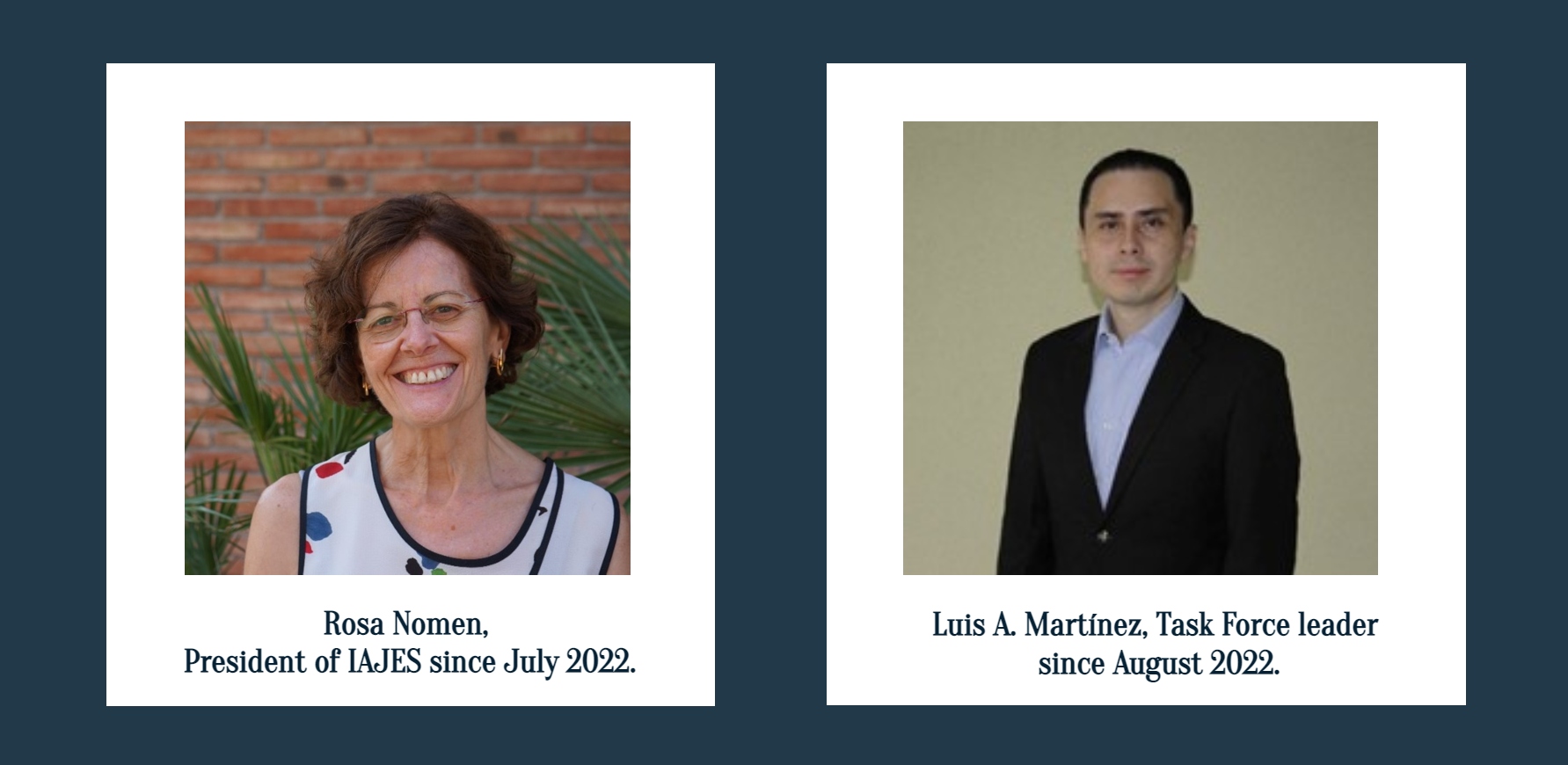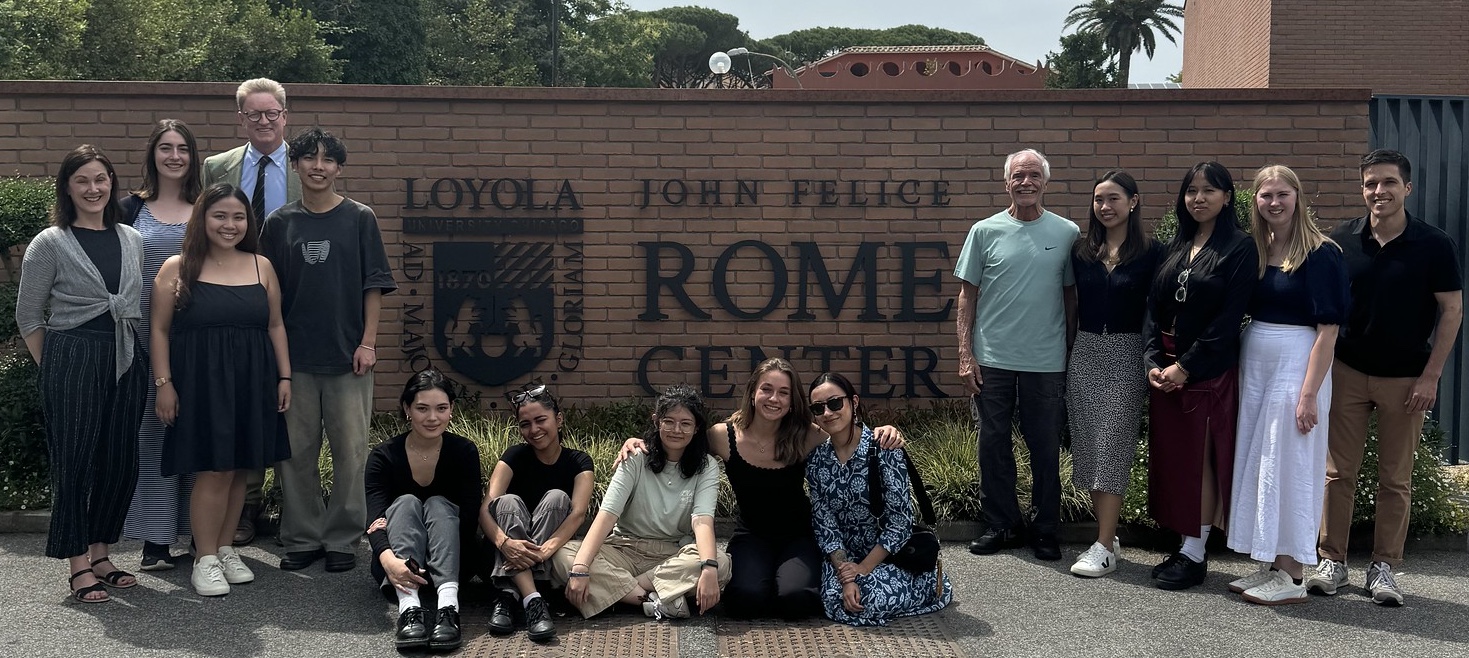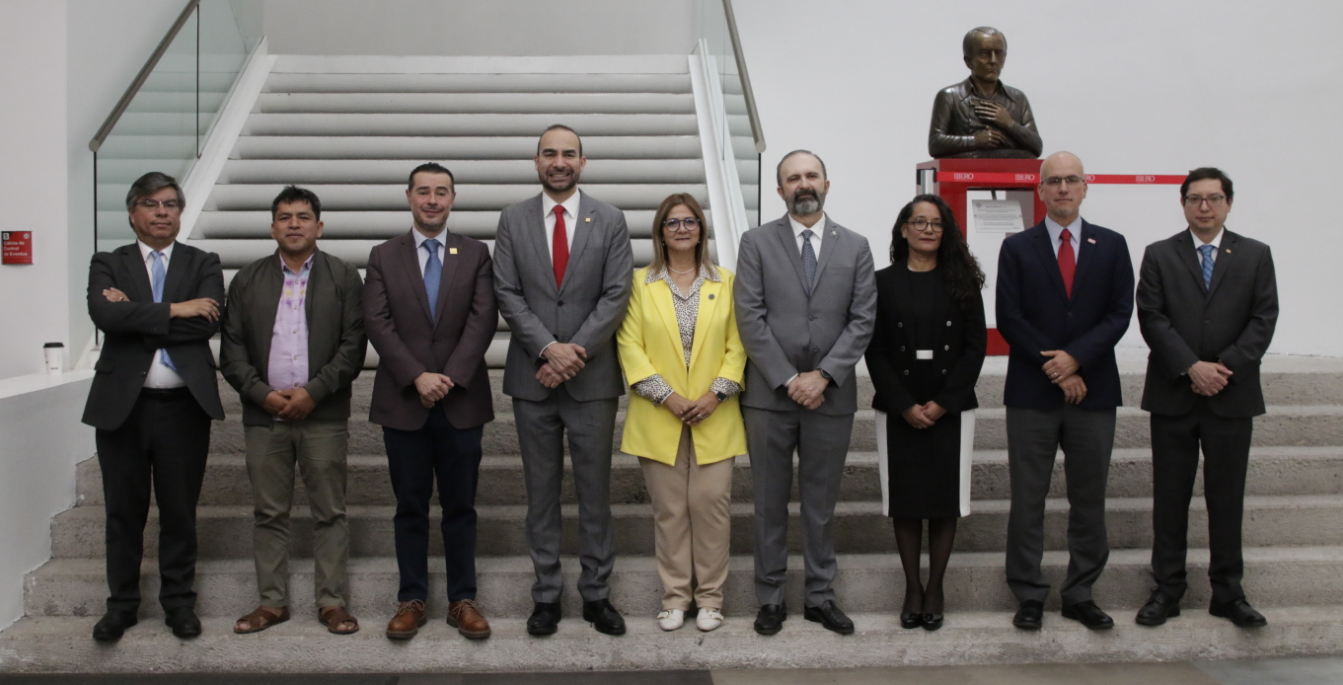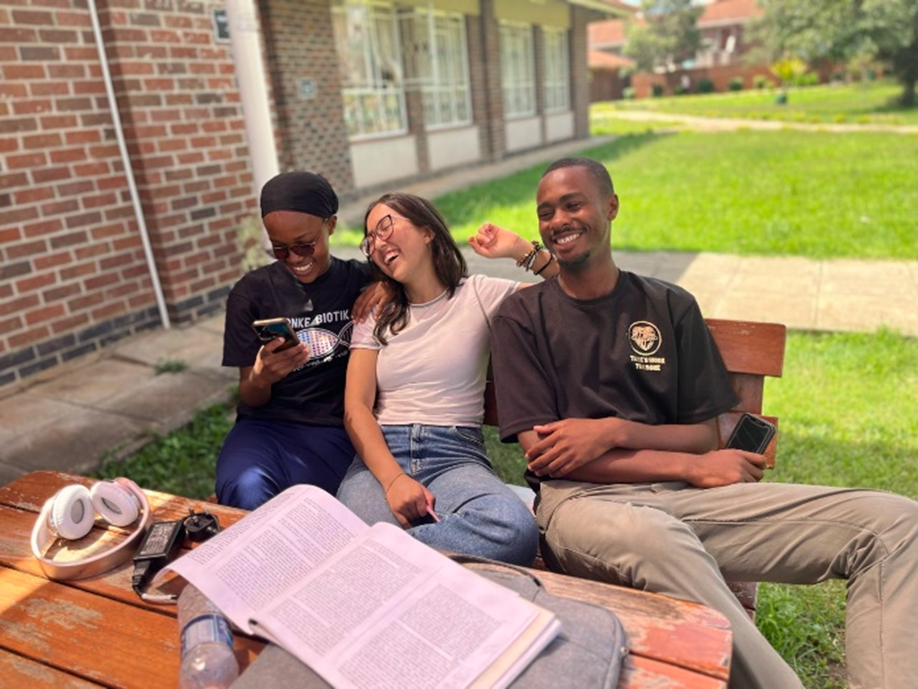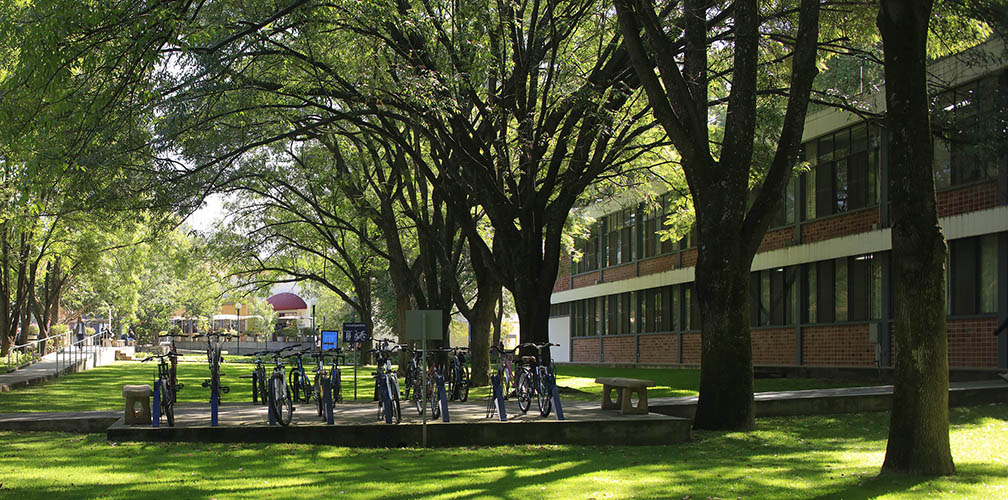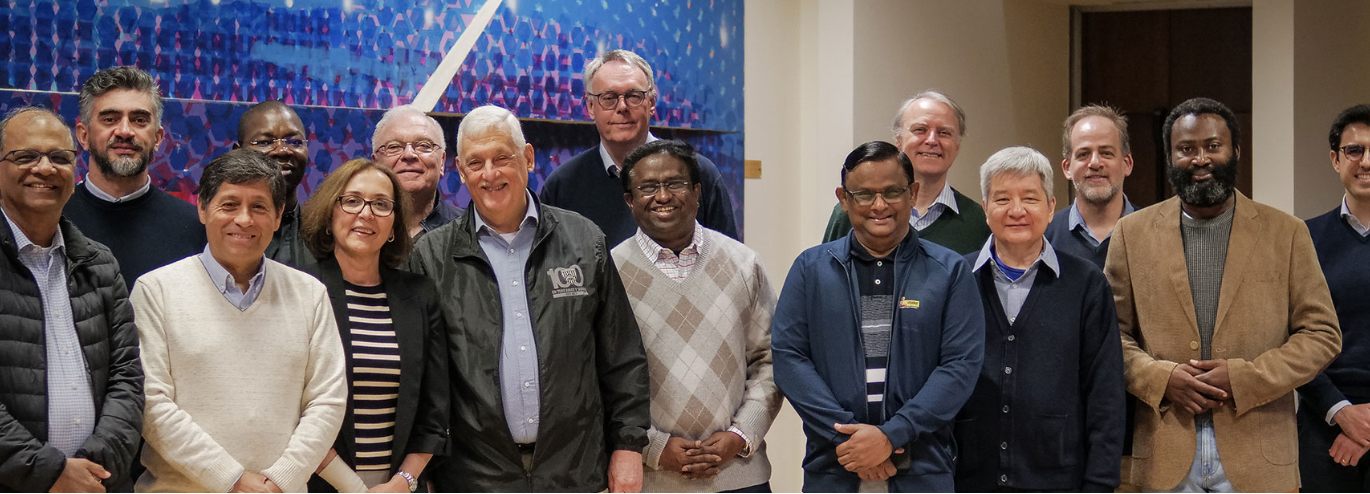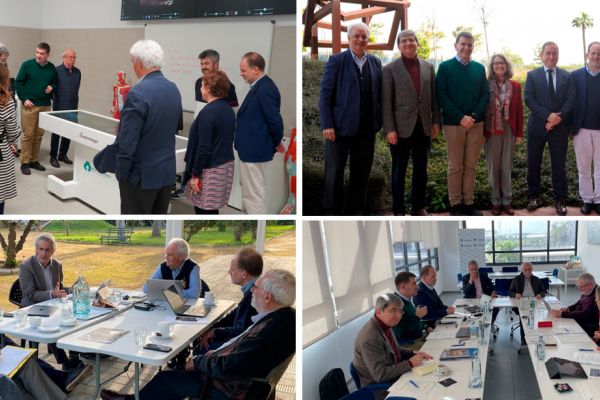Task Force on Research and Academic Cooperation. Mentoring Project.
Author: Rosa Nomen, President of IAJES since July 2022, Luís A. Martínez, Task Force leader since August 2022
The youngest task force of IAJES is the Research and Academic Cooperation Task Force. It began to be active with the elaboration of 3 projects proposed to the participants of a webinar on May 11, 2021, with the idea of fostering cooperation within the network. The proposed projects were:
Mentoring.The mentoring program aims to share knowledge between experienced professors and younger or less experienced professors within the Jesuit Universities network.
Cooperative Ph.D. Program.This initiative builds on previous experiences within the network. Students pursue Ph.D. degrees by conducting research with a professor at another University. The research project should be of interest to both universities.
Building Transversal skills for scientists and engineers.To develop a tentative program that helps train scientists with research techniques and skills applicable to many disciplines.
The project with more votes to be the first was Mentoring, the one we have been working on since then. We wrote the project proposal, launched the call for participants, and assigned roles according to their priorities. In this short news, we want to share our results and new ideas for the following years.
Mentoring Project
Scope
The Mentoring Project aims to facilitate the creation of links between IAJES members. Under the umbrella of mentoring, needs, concerns, or projects can arise and can be solved without a fixed deadline. With mentoring, all participants will have the intangible reward of the benefit of the transmission of specific expertise.
According to accepted definitions, Mentorship is a personal development relationship in which a more experienced or knowledgeable person helps guide a less experienced or less knowledgeable person.
A mentor may be older or younger but have a particular area of expertise. Here the mentor should be a professor or researcher with experience in teaching, conducting research projects for industry or administration, with a high capacity for listening and high doses of empathy.
A mentee should be a professor or researcher who wants to change or improve something in his or her professional life. Also, due to the reality of many IAJES institutions in developing countries, some faculty have not had the opportunity to conduct many research projects or have lost track of trends in their research areas and would like to have a mentor who can guide them to find new research topics, collaboration opportunities, and develop new skills.
Mentoring will generate mutual benefits between participants. Developing countries may particularly need the helping hands of the developed countries and developed countries can regain the hospitality and warm treatment of the developing countries.
For us, mentoring is not a form of control, directive leadership, or interference with the directives received from the University of the mentee.
To summarize, mentors have the experience that others, mentees, can learn from.
Results after the 1st year
The first action was the creation of a team of leaders formed by Prof. Dr. Carlos Campos, Universidade Católica de Pernambuco, Brazil, Prof. Dr. Benjamin Dingel, Ateneo Manila University, Philippines, Prof. Dr. Luís A. Martínez, Universidad Centroamericana “José Simeón Cañas”, El Salvador, Prof. Dr. Rosa Nomen, IQS – Ramon Llull University, as chair of the project, Spain, Prof. Dr. Muhsin Elie Rahhal, Saint Joseph University, Lebanon, and Prof. Dr. Julià Sempere, IQS – Ramon Llull University, Spain.
We constituted a nucleus that met monthly to evaluate the progress and design actions to correct what was not running adequately. The team leaders have been resourceful, full of ideas, and capable of working together, creating new visions of cooperation and collaboration.
The second action was to conduct a survey and a webinar with all people that showed some interest in the project. The result was the creation of the first Mentoring round, composed of a group of 36 professors and researchers from Brazil – Escola de Engenharia de Minas Gerais (EMGE) and Universidade Católica de Pernambuco, Cameroon– UCAC-ICAM, Colombia, Pontificia Universidad Javeriana, Ecuador – Pontificia Universidad Católica del Ecuador, France – ICAM, Lebanon – Université Saint Joseph (USJ), Mexico – Universidad Iberoamericana, Perú – Universidad Antonio Ruiz de Montoya, Philippines – Ateneo de Manila University and Ateneo de Naga University, El Salvador– Universidad Centroamericana “José Simeón Cañas”, Spain – IQS-Universitat Ramon Llull, Universidad de Deusto, Universidad Loyola Andalucía, Universidad Pontifica de Comillas and United States of America– Santa Clara University.
The mentoring experiences during this period were shared in the follow-up meetings and allowed us to conduct actions to reallocate some people or emphasize the primary purpose of the mentoring under the Ignatian institutions.
We found that, in some countries, mentoring is aimed solely at professional development. Our mentoring vision also includes the mentee's growth as a person. We are inspired by Ignatian spirituality; the final purpose is the soul's salvation.
We also detected some areas of improvement in our first guide for participants or Mentoring guide. We are revisiting that guide in the second year to improve its clarity and facilitate the work of the mentor-mentee couples. Other challenges include time availability constraints for participants, who are typically involved in various academic and administrative duties. However, the main challenge is the adequate initial engagement of people, creating a long-lasting bond to work together as mentor and mentee.
Further work
After the IAJES Summit in Boston College, we retake the periodic meetings under the chair of Prof. Luis Aaron Martínez and define further work. The new objectives include strengthening the Mentoring program, expanding its visibility throughout our Jesuit institutions, and creating more opportunities for collaborative work. In addition to improving the mentoring program, the idea of creating opportunities for more Collaborative Ph.D. programs is also included in our plans. The idea is to use the resources in the network to foster better research and opportunities for researchers from around the world to fulfill our joint Mission.
Some of us are working to illuminate our mentoring under the view of Ignatian spirituality and to do a better job and better align with what we want to do.
Conclusion
For IAJES, the Mentoring project is a successful experience, a way to work together, and an example that can be used as a model for other areas.
Speaking the words of Fr. G. Arturo Sosa[1], during the presentation of a film named, The Ignatian Way, directed by Jordi Roigé, at the Vatican Film Library.
“More important than the Way is the Pilgrim and the most important is the conversion to be a pilgrim like Iñigo decided to be.
A pilgrim must learn to read the signals found along the way and learn to distinguish them.
The pilgrim needs to learn to be accompanied and, even more important, must learn to be guided”
